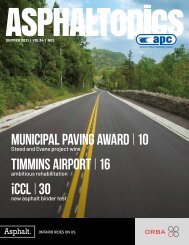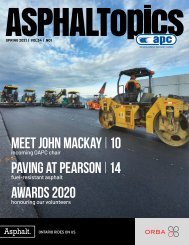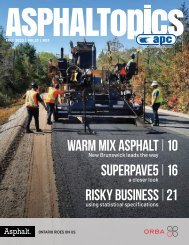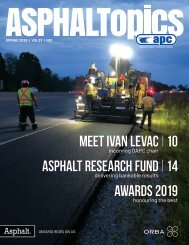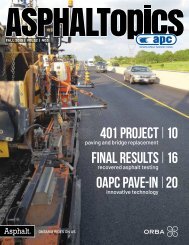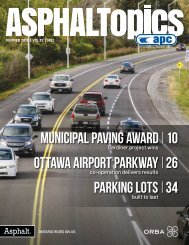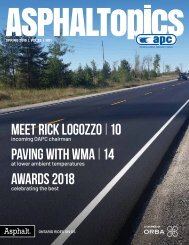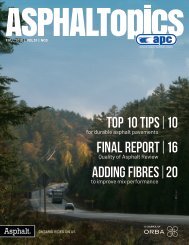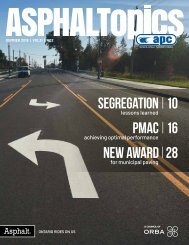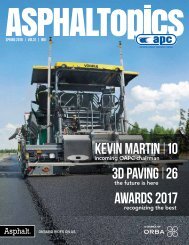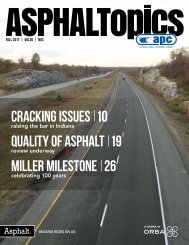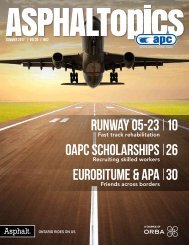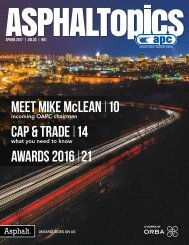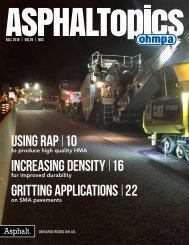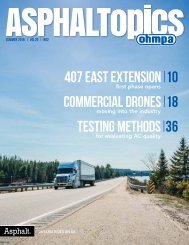ASPHALTopics | Fall 2015 | VOL 28 | NO 3
Create successful ePaper yourself
Turn your PDF publications into a flip-book with our unique Google optimized e-Paper software.
ENVIRONMENTAL<br />
ESSENTIALS<br />
by Christina Wright<br />
Higher fees coming to HWIN:<br />
A good time to review your hazardous waste<br />
The Hazardous Waste Information Network (HWIN)<br />
website is where generators, carriers and receivers of<br />
subject waste (as defined under Regulation 347 of the<br />
Environmental Protection Act) are required to register<br />
their subject waste activities with the Ontario Ministry<br />
of the Environment and Climate Change (MOECC).<br />
Examples of subject waste from an asphalt plant may<br />
include: chemicals from labs, wet scrubber sludge, used<br />
oil from maintenance activities, spilled asphalt cement,<br />
or contaminated soil. All facilities that generate subject<br />
waste must identify their appropriate waste codes and<br />
register these waste codes on their HWIN account.<br />
Annually this “generator registration” must be<br />
reviewed and renewed by February 15.<br />
The MOECC is proposing increases in the HWIN waste<br />
tonnage fee from the current $10/tonne to $20/tonne<br />
starting in 2016 and $30/tonne starting in 2017. This is<br />
a significant cost increase if your facility generates a lot<br />
of subject waste. The manifest fee of $5/manifest and<br />
the annual registration fee of $50 will remain the same.<br />
How can you reduce your waste costs?<br />
Confirm you are using the appropriate waste<br />
characterization codes. The more hazardous the<br />
waste characterization code, the higher the waste<br />
disposal costs. If you are relying solely on your waste<br />
carrier to determine your waste characterization codes,<br />
consider getting a second opinion. Further, if you or your<br />
waste carrier are relying on old waste characterization<br />
testing data (e.g. a leachate toxic test), consider getting<br />
new test data. Don’t over characterize your waste!<br />
Don’t mix your wastes together or with other materials.<br />
Not only does this increase the total waste tonnage<br />
requiring disposal, but the mixed waste may now<br />
have a more hazardous waste characterization code.<br />
Remember, intentional waste mixing at your site (such<br />
as “diluting” your waste) is considered waste processing<br />
by the MOECC – this activity is permissible, but it<br />
requires a specific waste ECA permit.<br />
For more information on HWIN visit the HWIN<br />
homepage at https://www.hwin.ca/hwin/index.jsp<br />
Christina Wright is Environmental Compliance Specialist at<br />
BCX Environmental Consulting, a Canadian environmental<br />
engineering company specializing in providing expert<br />
environmental consulting services.<br />
FALL <strong>2015</strong> 39




